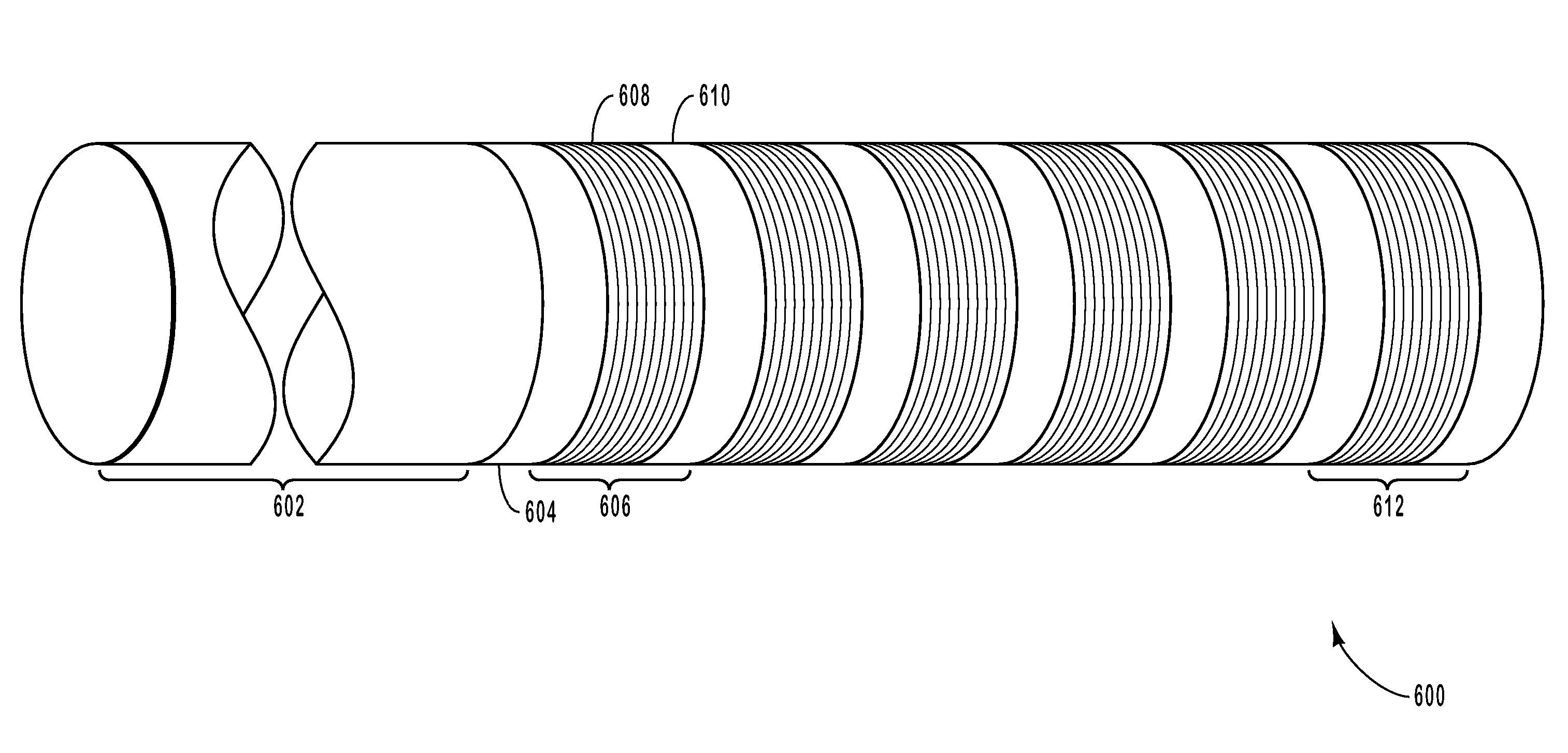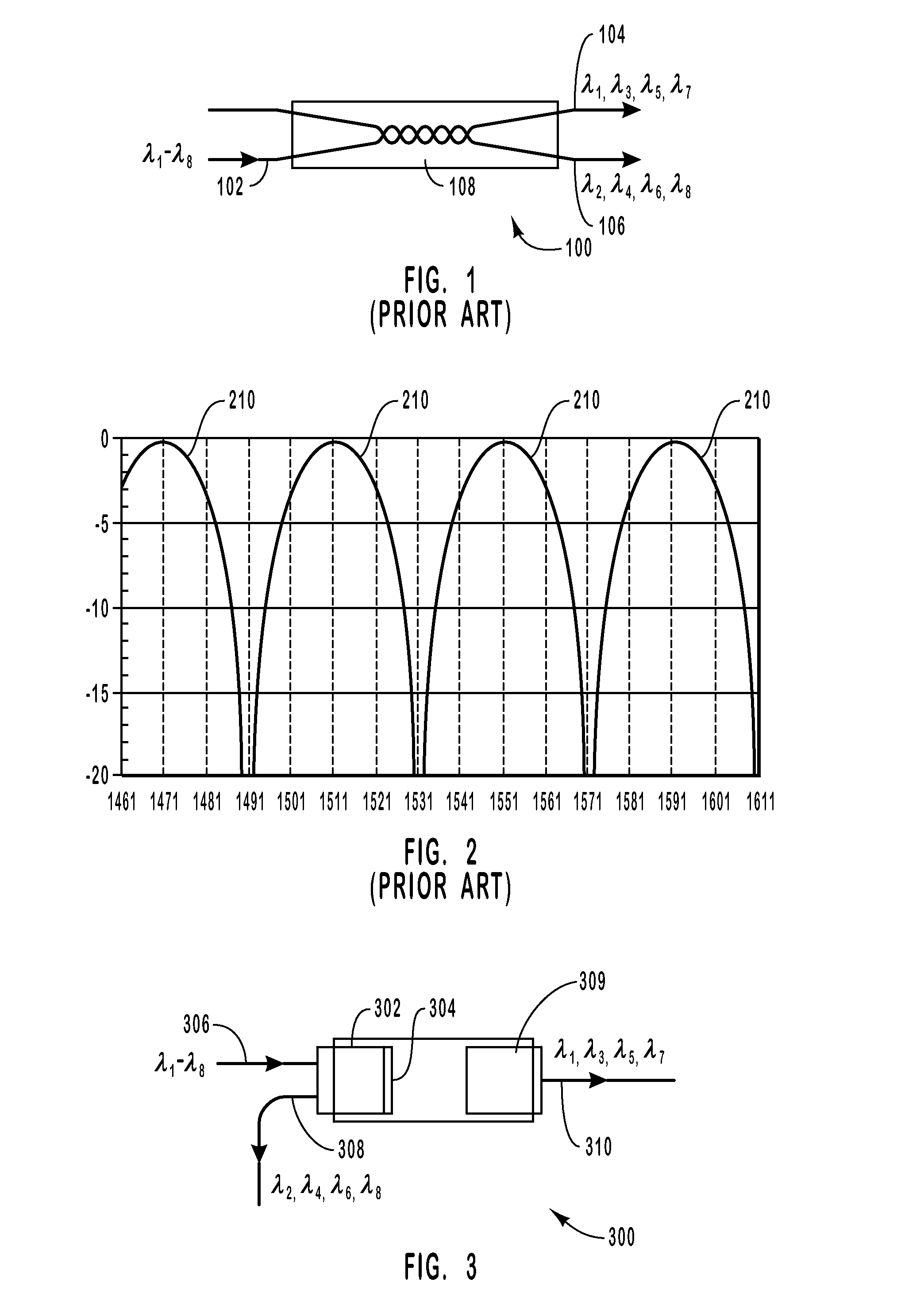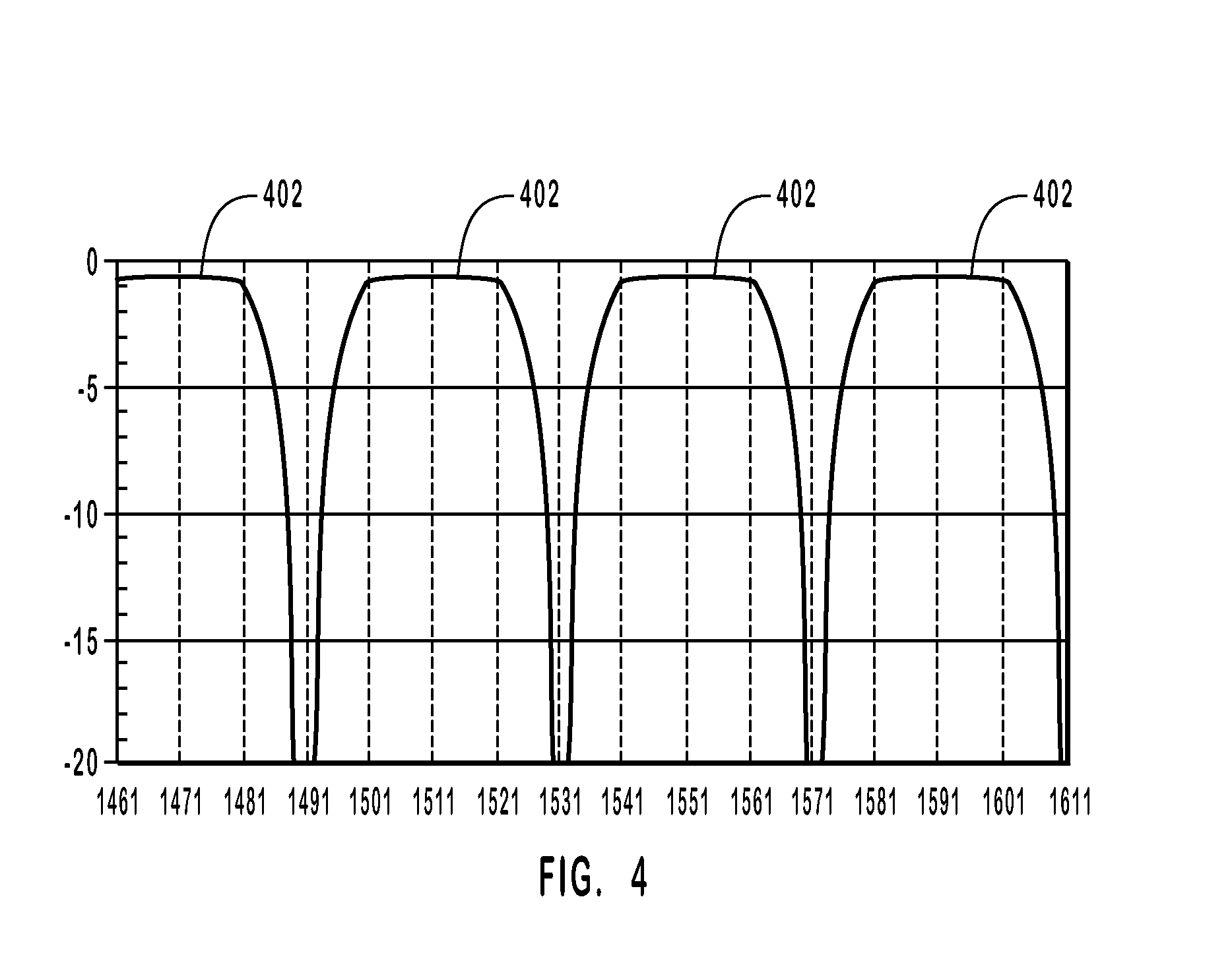Thin film interleaver
a technology of interleaver and thin film, applied in the field of systems and methods for interleaving optical signals, can solve the problems of significant signal loss, high signal loss, and temperature sensitivities of the fused fiber interleaver device itself, and achieve the effect of reducing cross talk and reducing insertion loss
- Summary
- Abstract
- Description
- Claims
- Application Information
AI Technical Summary
Benefits of technology
Problems solved by technology
Method used
Image
Examples
Embodiment Construction
[0025] Interleavers are optical elements or components that can be used for a variety of different purposes. Often, interleavers are used in multiplexing or demultiplexing optical elements as well as in add / drop multiplexers to separate or combine two sets of optical signals. Fused fiber interleavers have a Gaussian response. Thus, the signal loss of a fused fiber interleaver can increase when the interleaver or optical signals are subject, for example, to wavelength drift, temperature variations, and the like.
[0026] The present invention relates to interleavers and more particularly to a thin film interleaver. A thin film interleaver has the advantage of providing an improved frequency response that is not as susceptible to wavelength drift and temperature variations. The present invention also relates to optical elements such as multiplexers and demultiplexers that incorporate both fused fiber interleavers and thin film interleavers.
[0027] In one embodiment of a thin film interl...
PUM
 Login to View More
Login to View More Abstract
Description
Claims
Application Information
 Login to View More
Login to View More - R&D
- Intellectual Property
- Life Sciences
- Materials
- Tech Scout
- Unparalleled Data Quality
- Higher Quality Content
- 60% Fewer Hallucinations
Browse by: Latest US Patents, China's latest patents, Technical Efficacy Thesaurus, Application Domain, Technology Topic, Popular Technical Reports.
© 2025 PatSnap. All rights reserved.Legal|Privacy policy|Modern Slavery Act Transparency Statement|Sitemap|About US| Contact US: help@patsnap.com



